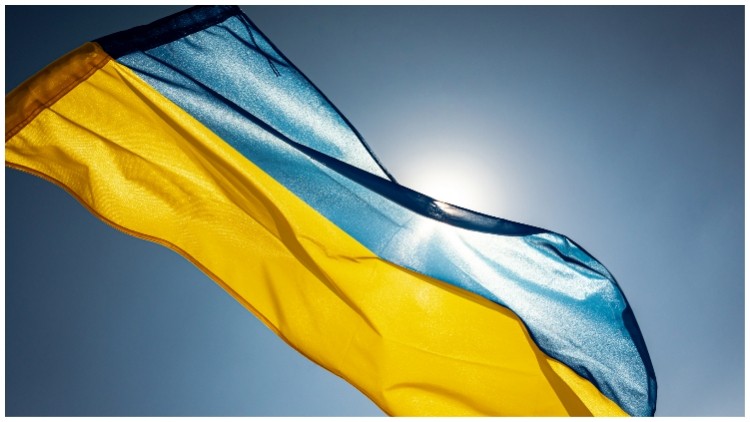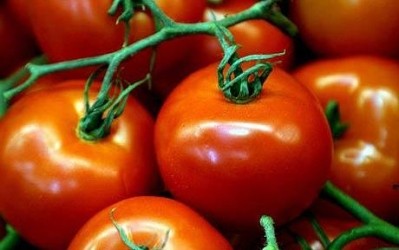Long read
War in Ukraine: what’s at stake for UK food producers?

The level of pressure on the UK food and drink industry has never been quite as intense as in the past year.
As Russia’s invasion of Ukraine surpasses the 12-month mark, it’s perhaps appropriate to compare how the sector performs now compared to before the conflict started in February 2022.
The war’s impact on global food markets has been severe, to be frank. Before Russia’s unprovoked invasion, Ukraine was among the world’s top exporters of agricultural commodities, earning itself the moniker 'the breadbasket of Europe'. The country accounted for half of the planet’s sunflower seed oil, 18% of its barley, 16% of global maize production and 12% of our wheat. Now that basket has, regrettably, been all but knocked over.
Ukraine is one of the most highly cultivated countries in the world. In 2021, Ukrainian farmers sowed almost 17 million hectares of spring crops – more than the combined area of Austria and Czechia. Last year, the planted area under grain crops was nearly a quarter (22%) less.
The drop in output isn’t just limited to reduced farming activities. Getting agricultural goods out of the country to concerned international markets is hampered by Russia’s naval forces blocking the Black Sea ports, representing the country’s major export routes. Even domestic transport lines to these export points are often interrupted.
War-related supply line disruptions and less reliable exports that are harder to secure also resulted in a sharp spike in the price of foodstuffs. This comes at a time when prices were already at their highest levels in a decade.
The Ukraine conflict also sent UK energy prices soaring, mainly due to a surge in wholesale gas prices. A spike in energy demand already drove prices up when the economy came stuttering from the pandemic slowdown and was driven even higher after the invasion. This is because export bans removed gas, coal and three million barrels of Russian oil a day from global supplies. The accumulative impact created a perfect storm that pushed up longstanding static interest rates and sent inflation soaring, resulting in a sharp rise in the cost of living.
Cost of living and other challenges
The food and drink industry is no stranger to rapidly shifting consumer behaviours. These place relentless fresh demands on manufacturers and retailers as an ever more sophisticated, socially conscious public has become increasingly aware of the impact their buying decisions can have on society, legislation and the planet.
It might see shoppers pursuing a healthier dietary lifestyle – motivated by a desire to reduce the environmental impact of the products they buy and a concern about animal welfare and factory farming.
Although these factors more or less prepared many players in the food industry to deal with the changes that might arise with the advent of a war in Ukraine, it still came with many challenges.
The industry continuously monitors consumer behaviour and intentions to anticipate and make reliable predictions of upcoming trends. Yet a black swan event such as the conflict in Europe was big enough to send shockwaves through international markets. Unprecedented in nearly 80 years, the event unfolded quickly.
Because of the swift escalation of the overall cost of living – food, clothing, energy, transport, big-ticket items, mortgages, and rents – shoppers became much more prudent with how they spend their money and are even cutting back on essentials. Customer loyalty took a massive knock too; if a supermarket has a supply shortage of a line, customers will simply take their money elsewhere. Equally, if a brand disappears from the shelves or is only available sporadically, consumers will switch to another without hesitation. Clearly, the demand for better value is becoming an increasing need as food and beverage prices rise.
It means that it is our and our fellow food producers’ duty to maintain delivery of the required products in sufficient quantities to ensure that retailers can increase value ranges, improve offers and retain customers. This calls for extreme vigilance around the security of our raw material supply chains.
Building resilience in times of uncertainty
A secure logistics management system is an indispensable asset for any manufacturer, so understanding how to meet market demands in the current climate of disruption became a top priority for all of us.
We have also had to interrogate the reliability of our supply lines, which became more vulnerable due to the conflict. Just as our business has had to reprioritise various business functions, so did our suppliers – causing a ripple effect that subsequently contributed to skyrocketing inflation rates.
Agile and adaptable manufacturers soon realised that shortening and reducing or absorbing supply chain complexity would make their organisations more resilient against any ongoing damage caused by the Ukranian conflict.
A very effective way of building resilience and sustainability is by increasing local sourcing – taking more from our immediate suppliers, as well as regionally and across the UK. This also includes increasing the number of domestic UK merchants.
Minimising the distance of movement raw materials travel from their origin to their endpoint doesn’t just secure the immediate and long-term future of a food manufacturer’s supply chain. Cutting down on air and road miles offers significant environmental benefits and freight cost savings – an important consideration to keep the price of finished products as competitive as possible.
In addition, securing the reliable delivery of ingredients allowed us to build up our stockholding for increased resilience as the conflict continues.
While we turned our activities to more local sourcing of raw materials, we also looked at bolstering our supplier relationships. By deepening our collaboration with them, we were able to agree on common goals and exchange industry know-how.
For example, freely sharing their knowledge and tips on market dynamics has often helped us anticipate and avoid problems or take advantage of predicted opportunities.
In addition, many manufacturers have introduced more ‘just-in-time’ delivery from local suppliers to facilitate speedier order fulfilment. This has allowed them to save on inventory holding costs for not holding large amounts of stock and increase inventory turnover. It also frees up more usable space in their warehouses for items that are ordered more variably.
The lingering conflict in Europe has undoubtedly placed massive constraints on the supply of critical raw materials to the rest of the world. Fortunately, the food and beverage industry – arguably the most critical industry today – has adapted quickly and effectively and has pivoted remarkably well to operate in a much more pressured ecosystem than existed just a year ago.
None of this would have been possible without collaboration, relationship building and a willingness to help colleagues, even competitors. This sense of solidarity has been crucial in keeping the shelves stocked and hedging against rising prices as much as possible.
Food producers and their suppliers have been reliable and dependable throughout the year-long conflict and are devising ways to meet challenges such as escalating costs. The world is no longer the same, but their determination to do the best for their buyers and end customers still is.


















